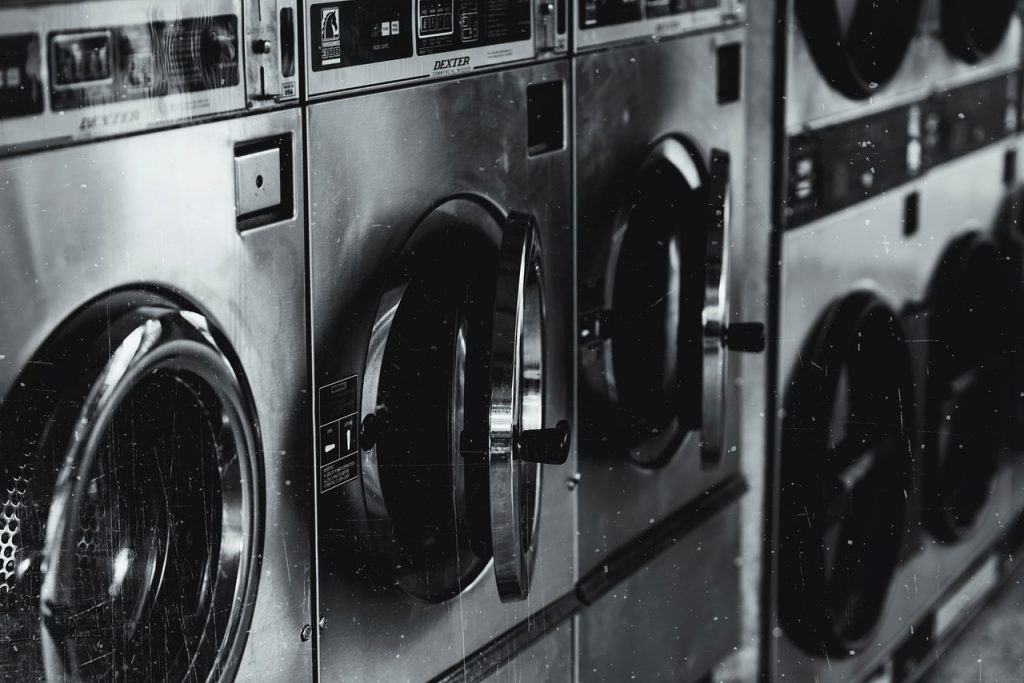photo by Adrienne Andersen
Landlords know no bounds of decency, and there is nothing that encapsulates this more than coin-operated laundry. After paying an enormous amount in rent and utilities monthly, undergoing credit checks and having to place a security deposit or a non-refundable moving fee in order to move in, there are still ways that landlords will try to squeeze money out of you.
People try to find hacks: using tokens instead of quarters, flicking pennies in at just the right angle, or try to find a key for their washer and dryer. To some that may be stealing, but I would argue it’s a protest against capitalism/
Doing laundry is not a privilege. It’s not a perk, like having a garbage disposal in your kitchen or having hardwood floors. No one can go without clean clothes. Not having access to laundry impacts your health, your ability to do paid work, and your social capital. Therefore, I would argue that having access to laundry is a fundamental human right.
Although to some that may sound ridiculous to many, including those on the conservative spectrum to those who are neoliberal, those familiar with leftist thought understand that it boils down to this: laundry is a necessity to function in society today. So everyone must have equal access.
Many apartment buildings don’t have laundry, forcing people to go to a laundromat and spend time and money they don’t have just to have clean clothes, and during a pandemic, it’s a health risk. And then there are the infamous coin operated machines that landlords love. Like many social structures and norms that have been questioned during a pandemic, this norm has also been called into question.
Last spring, there was a massive coin shortage. People were scrambling, trying to figure out how to do laundry. Many were banding together with their neighbors to ask their landlords to remove the coin slots, or scrambling to find quarters at banks or currency exchanges. The fact that this was at the mercy of each individual landlord highlights the need for collective action regarding all aspects of housing.
The laundry problem, of course, is part of the larger problem of the commodification of housing. When housing is part of someone’s investment portfolio, whether it be a mom and pop landlord or a behemoth like Mid-America Apartment Communities, it actively discourages property maintenance. The lower the cost of maintaining the property, the higher the investment. What sort of incentive do they have to maintain their rentals?
A cursory look at the landlord subreddit shows landlords’ unwillingness to invest in their own properties, the desire to nickel and dime their tenants, and a belief that tenants are untrustworthy. While people were receiving paltry stimulus checks or the federal unemployment supplement, people were lamenting, ‘what will the landlords do?” because eviction bans were in place.
When housing is commodified, markets will always win at the expense of people.
So, go ahead, and use tokens to rig the coin-operated washer and dryer. And meanwhile, let’s collectively unite for equitable and affordable housing.






Be First to Comment